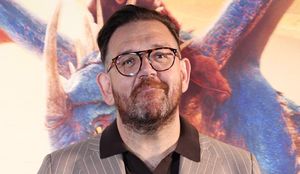Health
San Francisco is fighting opioid overdoses by giving out Narcan at drag shows — and this queen started it

YouTube SFGovTV; SF Entertainment Commission
Kochina Rude in the San Francisco Entertainment Commission’s Overdose Prevention Awareness video (L); Public Health representative Laura Thomas onstage with Kochina Rude distributing Narcan (R)
"I realized that my community was not getting the information they needed about how to reverse an overdose," KochinaRude tells The Advocate.
June 16 2025 6:20 AM EST
June 16 2025 9:32 AM EST









































































